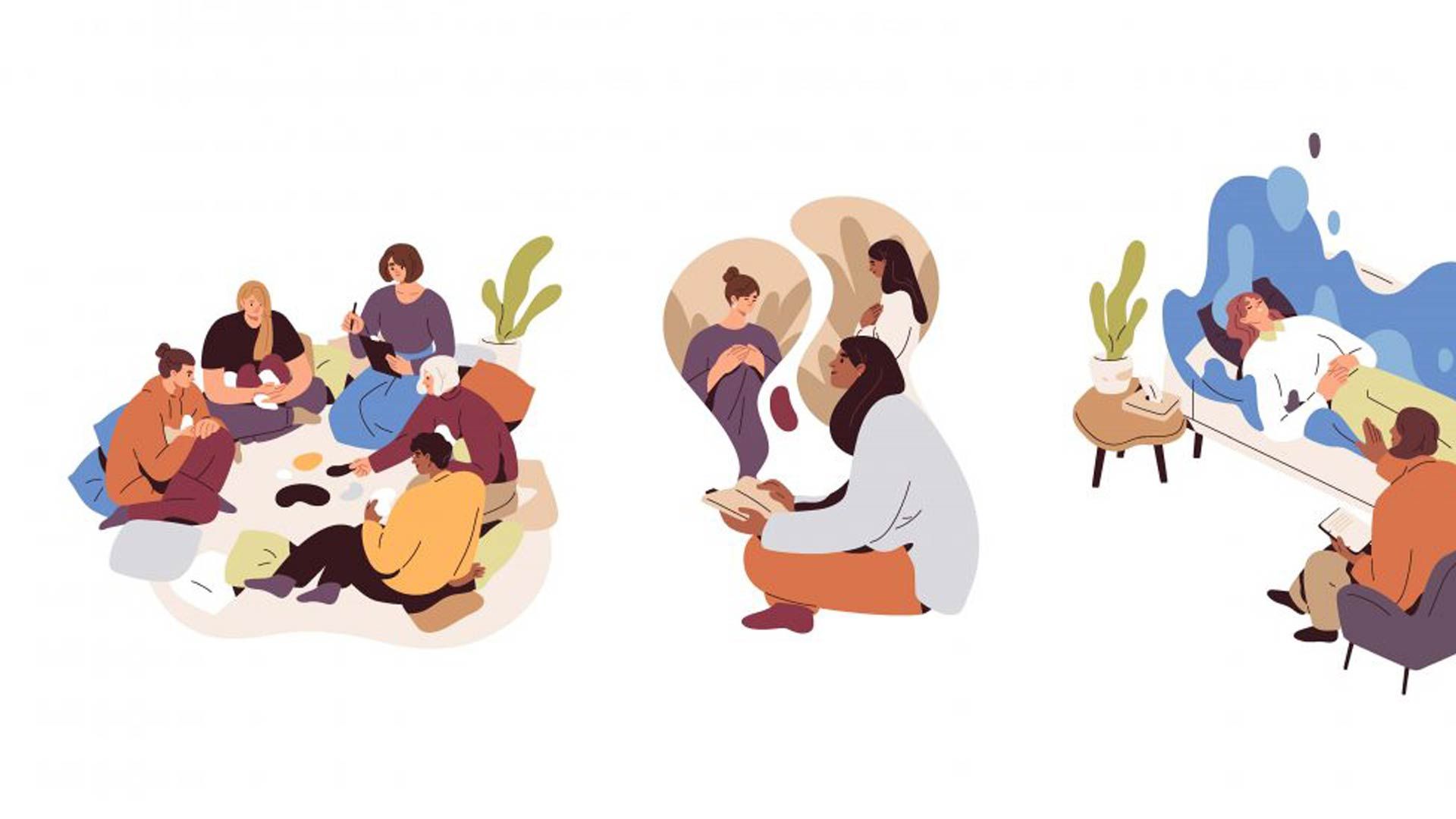Five Myths About Therapy: Debunked

For the last several years, attitudes concerning going to therapy have steadily improved. Where before it may have been seen as a sign that something was wrong in a person’s life, now, going to therapy is widely viewed as a strength. Still, several myths exist surrounding therapy; the aim of this article is bust a few of them.
When many of us think about therapy or see it on television or in a movie, what does it look like? Most may imagine it looks a lot like this: two people in a nicely furnished office complete with soothing pieces of art and framed diplomas on the walls. One person sits, or lies, on a nice sofa while the other sits across from them in a stylish chair, a pad of yellow paper resting on a knee as they take notes. Both people are well-dressed, appear to have more than enough money, and are most likely both white. The therapist is probably a woman, and the person on the sofa is telling her how terrible their life is.
Is this all there is to therapy? Is it only for certain people with serious problems, and does it always happen in a fancy office, in the middle of the day? Several commonly believed myths about therapy would say yes. The truth, however, says otherwise.
MYTH #1: Therapy is only for people with problems.
According to the article “Get the facts about psychotherapy” from apa.org, anyone can benefit from therapy. There are many different reasons people decide therapy is a good choice. It is true that some people who seek therapy struggle with issues like anxiety, substance abuse, or depression, but these are not the only ones who can benefit from therapy. Some people are in therapy to help them work through the grief that comes with losing a loved one or a big change in their lives, whether positive or negative. Others may want someone to help them with relationship issues, or they are wanting to change something about themselves.
https://www.apa.org/topics/psychotherapy/myths
MYTH #2: Going to therapy will make everyone think there is something wrong with me.
Many people now see the benefits of having someone outside their personal lives to talk to and assist them in figuring things out. In the past going to therapy was often viewed as bad, or that the person had something wrong with them. These feelings have recently changed for many people and groups. In the article mentioned above, it says, “…getting help is now seen as a sign of resourcefulness.” The old ways of looking at therapy as something shameful and bad are slowly going away.
MYTH #3: Therapy is too expensive.
Several insurances now cover a portion, or all, of the cost of going to therapy. As the opinions about therapy change, so does financial support for it. Individuals with government-sponsored insurance such as Medicaid or Medicare may possess the ability to have therapy paid for. The cost of therapy can range from free to quite expensive; the question of being able to afford therapy or not is something each person must make for themselves. If someone’s budget is not enough to include therapy, there are programs and mental health organizations that may be able to assist with the cost.
MYTH #4: Therapy is all the same.
There are lots of different kinds of therapy that look nothing like the scene at the beginning of this article. Play and Wilderness therapy are two examples. Play therapy uses toys, games, or other forms of play, to create a safe place to look at hard things. Play therapy is often used with children. Wilderness therapy usually happens in a natural setting like hiking trails or near bodies of water. However, it can also be done in city parks or municipal areas that provide a return to nature away from built-up spaces. These places allow a person to reconnect with nature during therapy which, to some, may be beneficial. There are many more forms of therapy for someone to choose from. The goal is to find the style of therapy that works for you.
MYTH #5: Therapy is not for someone like me.
Therapy can be beneficial for anyone, regardless of ethnicity, sexual orientation, gender, or how much money they have. A particularly damaging myth is that therapy is only for a certain “type” of a person or someone who fits a very narrow description. For years, there was a belief that therapy was only for white people with a lot of money. Today, there are therapists who specialize in providing therapy to a wide range of people. Every person is unique and should be able to seek the benefits that can come from therapy.
Resource Categories
- Addiction & Substance Use
- Anxiety
- Child Mental Health
- Crisis and Trauma
- Depression
- Exercise
- Just The Facts
- LGBTQIA+ & Pride
- Medicaid
- Men’s Mental Health
- Parenting
- Recovery
- Senior and Older Adult
- Socializing
- Stigma
- Stress
- Suicide Prevention
- Support & Advocacy
- Teen’s Mental Health
- Treatment Options
- Women’s Mental Health